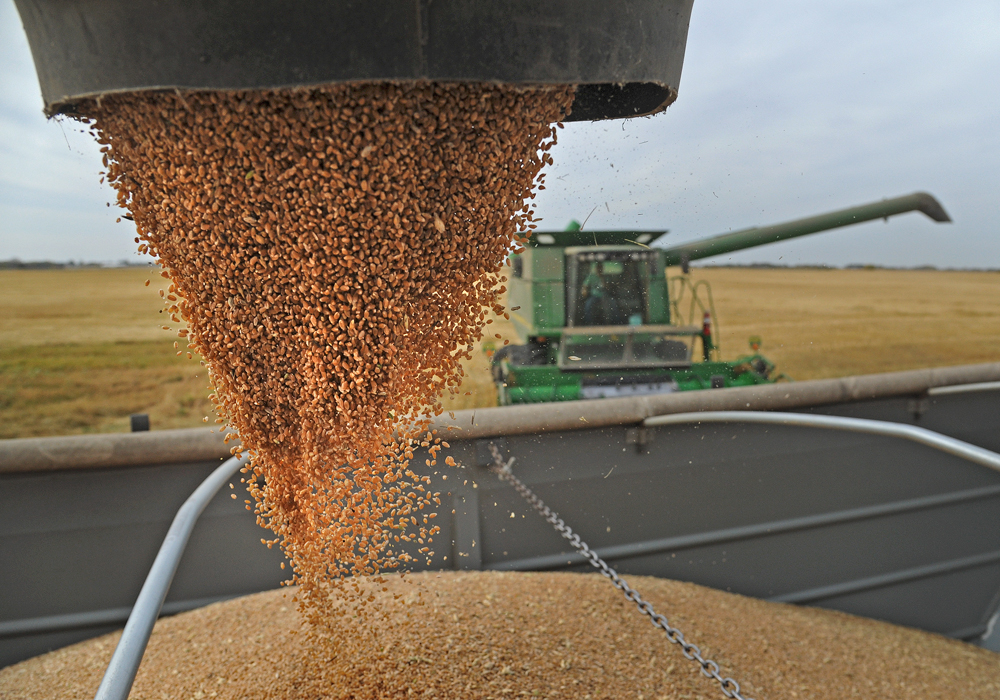After a week to 10 days of silence, grain grower associations are finally talking about the federal government’s $1.75 billion trade deal compensation package for Canadian dairy farmers.
Stephen Vandervalk, an Alberta farmer and vice-president of the Western Canadian Wheat Growers Association, said the silence was absurd because it’s grain growers — and not dairy farmers — who desperately need financial help.
“The commissions aren’t doing anything. They’re being dead quiet on it,” said Vandervalk, who farms near Fort Macleod, Alta.
“In one word, it’s almost disgusting. And you’re seeing a lot of farmers starting to pull their check-off dollars. They’re fed up with the commissions really sitting on their hands on not doing anything.”
Read Also

Farming Smarter receives financial boost from Alberta government for potato research
Farming Smarter near Lethbridge got a boost to its research equipment, thanks to the Alberta government’s increase in funding for research associations.
In mid-August, the federal government announced $1.75 billion in financial aid for dairy producers. The tax dollars will compensate dairy farmers for market access given to other nations in recent trade deals.
The WCWGA issued a news release shortly after the federal announcement, questioning the support for dairy farmers.
“At what point do you say this is absolutely ridiculous?” Vandervalk asked.
“Why would an industry (dairy) that has guaranteed income, a guaranteed market (need help)?”
The $1.75 billion announcement comes at a time when Canadian grain and oilseed farmers are coping with low prices, non-tariff trade barriers and limited access to key markets such as China.
The Wheat Growers estimated that international market challenges for grain growers, including China (canola), India (lentils), Italy (durum) and other countries, adds up to nearly $4 billion in market losses over the last three years.
Vandervalk, who was on the Grain Growers of Canada board for about a decade, contacted his former colleagues to understand why nothing is being said about the dairy compensation package.
“The common (response) is you need to be in the room to affect change,” he said.
“This is probably one of the biggest crises that the grain industry has seen in a long time…. I have no idea why seasoned people in the industry are using that line (to explain their silence).”
On Aug. 26, the AGgrowth Coalition, which represents the Canadian Canola Growers Association, Grain Growers of Canada and other organizations, broke the silence on the issue.
“Over 100,000 export dependent farmers producing $62 billion in farm cash receipts are facing the impacts from key international market closures and yet the government’s support is currently limited to only one sector,” the AGgrowth Coalition said in a release.
Markus Haerle, AGgrowth co-chair, said this isn’t about pitting grain farmers against dairy farmers.
“Equitable treatment is expected and reasonable…. This is about consistency in policy and the need to protect and support agriculture as a whole.”
Several agricultural economists have spoken about the $1.75 billion for dairy farmers — contrasting that aid to the financial help for canola growers.
When China stopped buying Canadian canola earlier this year, the federal government increased the limits of the Advance Payments Program.
“Grain farmers could be in for a long haul of low prices and a sobering trade outlook,” Al Mussell, research lead with Agri-Food Economic Systems in Ontario, told the Financial Post.
“They look at this and say dairy farmers got $1.75 billion and what did we get? Debt.”


















